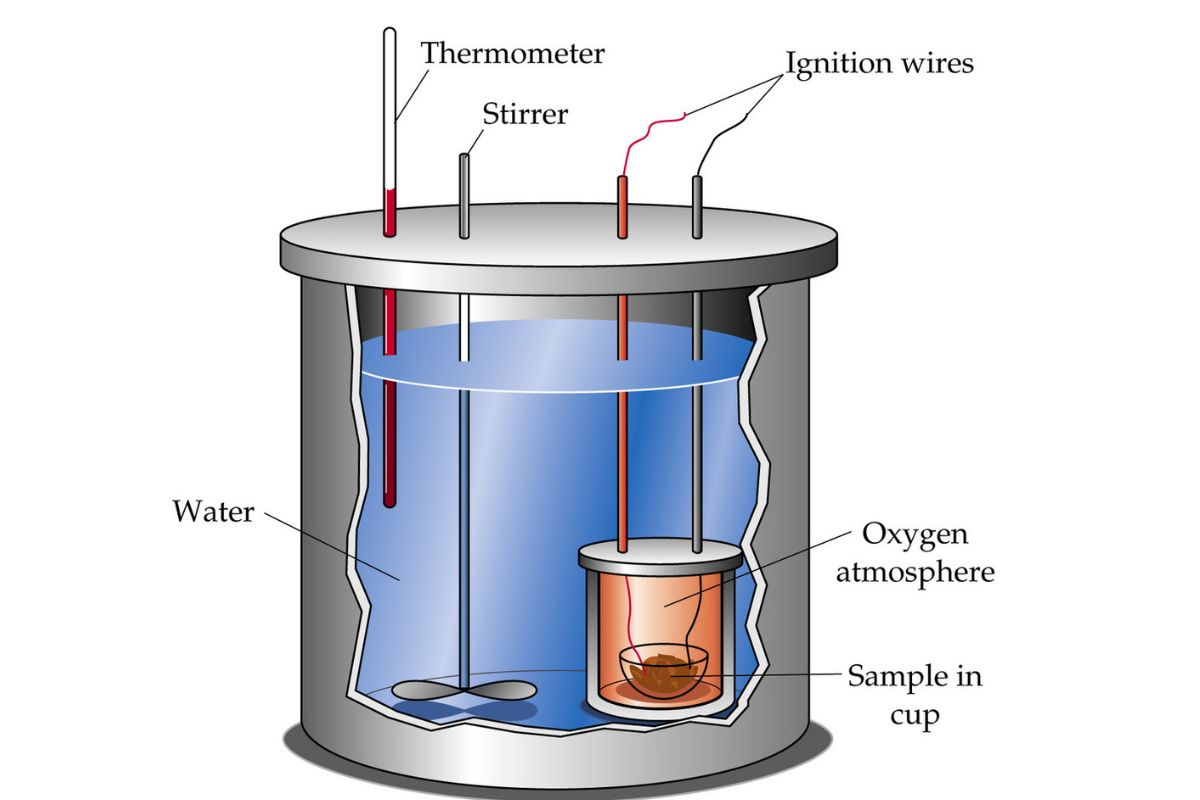
Calorimetry is the science of measuring heat changes in physical and chemical processes. Ever wondered how scientists determine the energy content in your food or the heat produced by a chemical reaction? Calorimetry holds the key. This fascinating field uses devices called calorimeters to measure heat transfer, helping us understand everything from metabolic rates to the efficiency of engines. Whether you're curious about how your body burns calories or how fuel powers your car, calorimetry provides the answers. Dive into these 25 intriguing facts about calorimetry and discover the hidden world of heat measurement.
What is Calorimetry?
Calorimetry is the science of measuring the heat of chemical reactions or physical changes. It's a fascinating field that helps us understand energy transfer in various processes. Here are some intriguing facts about calorimetry.
- The term "calorimetry" comes from the Latin word "calor," meaning heat.
- Calorimetry is used in chemistry, biology, physics, and engineering.
- The device used to measure heat changes is called a calorimeter.
- Antoine Lavoisier, a French chemist, is often credited with developing the first ice calorimeter in the 18th century.
- Calorimetry can measure both exothermic (heat-releasing) and endothermic (heat-absorbing) reactions.
Types of Calorimeters
Different types of calorimeters are designed for specific applications. Each type has unique features that make it suitable for particular measurements.
- A bomb calorimeter measures the heat of combustion of a substance.
- A coffee cup calorimeter is a simple device often used in high school labs.
- Differential scanning calorimeters (DSC) measure heat flow in materials as they are heated or cooled.
- Isothermal titration calorimeters (ITC) measure the heat released or absorbed during chemical reactions.
- Microcalorimeters can detect minute heat changes, making them useful in biological research.
Applications of Calorimetry
Calorimetry has a wide range of applications across various fields. Its ability to measure heat changes makes it invaluable in many scientific and industrial processes.
- In food science, calorimetry measures the caloric content of food.
- Pharmaceutical companies use calorimetry to study drug interactions.
- Environmental scientists use it to study the heat effects of pollutants.
- Engineers use calorimetry to test the efficiency of engines and other machinery.
- In material science, calorimetry helps in studying phase transitions.
Historical Milestones in Calorimetry
The history of calorimetry is rich with significant discoveries and advancements. These milestones have paved the way for modern techniques and applications.
- In 1782, Lavoisier and Laplace used an ice calorimeter to measure the heat produced by a guinea pig.
- In 1845, James Prescott Joule used calorimetry to establish the mechanical equivalent of heat.
- The development of the bomb calorimeter in the late 19th century revolutionized the study of combustion.
- In the 20th century, the invention of DSC and ITC expanded the scope of calorimetry.
- Modern advancements include the development of high-precision microcalorimeters.
Fun Facts About Calorimetry
Calorimetry isn't just about serious science; it has some fun and surprising aspects too. These facts highlight the lighter side of this fascinating field.
- The first ice calorimeter used by Lavoisier and Laplace was essentially a giant ice bucket.
- Calorimetry can be used to measure the heat produced by living organisms, including humans.
- Some calorimeters are so sensitive they can detect the heat produced by a single cell.
- The caloric content of food is often measured using a bomb calorimeter.
- Calorimetry has even been used to study the heat produced by volcanic eruptions.
Calorimetry is a vital tool in understanding the energy changes in various processes. From its historical roots to modern applications, it continues to be an essential part of scientific research.
The Final Word on Calorimetry
Calorimetry is a fascinating field that helps us understand how energy works in various processes. From measuring the calories in food to studying chemical reactions, it plays a crucial role in science and everyday life. Knowing these 25 facts gives you a solid foundation in the basics of calorimetry. Whether you're a student, a science enthusiast, or just curious, this knowledge can be both practical and enlightening.
Remember, the principles of calorimetry are all around us, from the food we eat to the energy we use. By grasping these concepts, you gain a better understanding of the world and how energy impacts everything. So next time you hear the term "calorimetry," you'll know exactly what it means and why it matters. Keep exploring and stay curious!
Was this page helpful?
Our commitment to delivering trustworthy and engaging content is at the heart of what we do. Each fact on our site is contributed by real users like you, bringing a wealth of diverse insights and information. To ensure the highest standards of accuracy and reliability, our dedicated editors meticulously review each submission. This process guarantees that the facts we share are not only fascinating but also credible. Trust in our commitment to quality and authenticity as you explore and learn with us.
